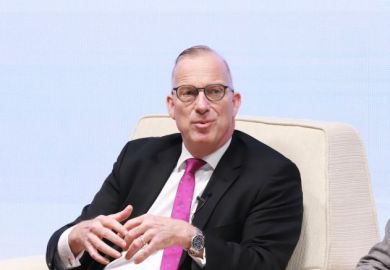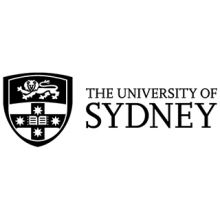Media administrator and bureaucrat Mark Scott, who has been picked with no professional academic experience to run the University of Sydney, agrees that his skills as a political negotiator and cut-through communicator helped push his candidacy across the line.
“The achievements of the university and the sector as a whole are by and large undersold,” Mr Scott told Times Higher Education. “Part of my job will be to bring that spotlight to the work taking place here so that the universities get the support they need and deserve.”
Sydney chancellor Belinda Hutchinson said Mr Scott was “the right person for our university at this particular point in our history”, citing his skills in “building coalitions of support”.
She said the search for a new vice-chancellor, which started last April, had included consultation with the university community. “They told us that they wanted someone that could relate to all levels of the institution with a track record of strategic leadership in complex environments, an extensive record in government, industry and community relations [and] strategic and financial acumen…Mark ticks all those boxes and more.”
Mr Scott’s appointment coincides with criticism of the body that represents Australian vice-chancellors, Universities Australia (UA), over its perceived lack of influence with federal decision-makers.
The University Chancellors Council reportedly commissioned a review of UA over policy failures including universities’ exclusion from the JobKeeper wage subsidy scheme, their inclusion in Canberra’s foreign interference crackdowns and the continuing closure of borders to international students.
UA chairwoman Deborah Terry said the review was the first such appraisal of the organisation since 2007. She told the National Press Club that UA had a “good relationship” with Canberra, citing policy wins including an extra A$1 billion (£557 million) of research funding, 62,000 additional undergraduate and microcredential places and more favourable visa settings for foreign students.
Mr Scott said one of his challenges would be to explain the “mind-bending complexity” of the university’s work in a way that made people “want to fight to defend it”.
He said he was familiar with the university’s research through his time as a director of the Australian Science Media Centre. “Part of that…was to take the great work of scientists and think through how you could effectively communicate [it] so the public could understand it, value it and appreciate it.”
Mr Scott has a master’s degree in political science and government from Sydney, where he also earned undergraduate credentials in arts and education. He also has a master’s degree in public administration from Harvard University.
Since 2016 he has headed the New South Wales Department of Education, the largest education system in Australia. Before that, he spent a decade as managing director of the national public broadcaster, the ABC, where he oversaw its digital transformation.
Earlier in his career he was chief of staff to 1990s NSW education minister Virginia Chadwick and an adviser to her predecessor, Terry Metherell. He was also education editor of the Sydney Morning Herald and held senior editorial roles with its parent company.
When he assumes office on 19 July, he will be one of very few Australian vice-chancellors without a doctorate – a status he will share with Notre Dame Australia’s Francis Campbell, a former private secretary to UK prime minister Tony Blair.
Mr Scott said some people had considered him “from outside the tribe” when he joined the ABC as a print journalist with no broadcast experience. By the time he left, his strongest backers were programme makers, whom he likened to “knowledge workers” in universities.
“They knew that I wanted to support them to be as effective as they could be, and that they would be strengthened if the institution as a whole was strong and well understood. There are brilliant researchers here at the university. I look forward to…thinking through how the university operates to help those researchers be successful, but also to make sure [their] achievements are well understood [and] supported by the broader community.”
Register to continue
Why register?
- Registration is free and only takes a moment
- Once registered, you can read 3 articles a month
- Sign up for our newsletter
Subscribe
Or subscribe for unlimited access to:
- Unlimited access to news, views, insights & reviews
- Digital editions
- Digital access to THE’s university and college rankings analysis
Already registered or a current subscriber?









